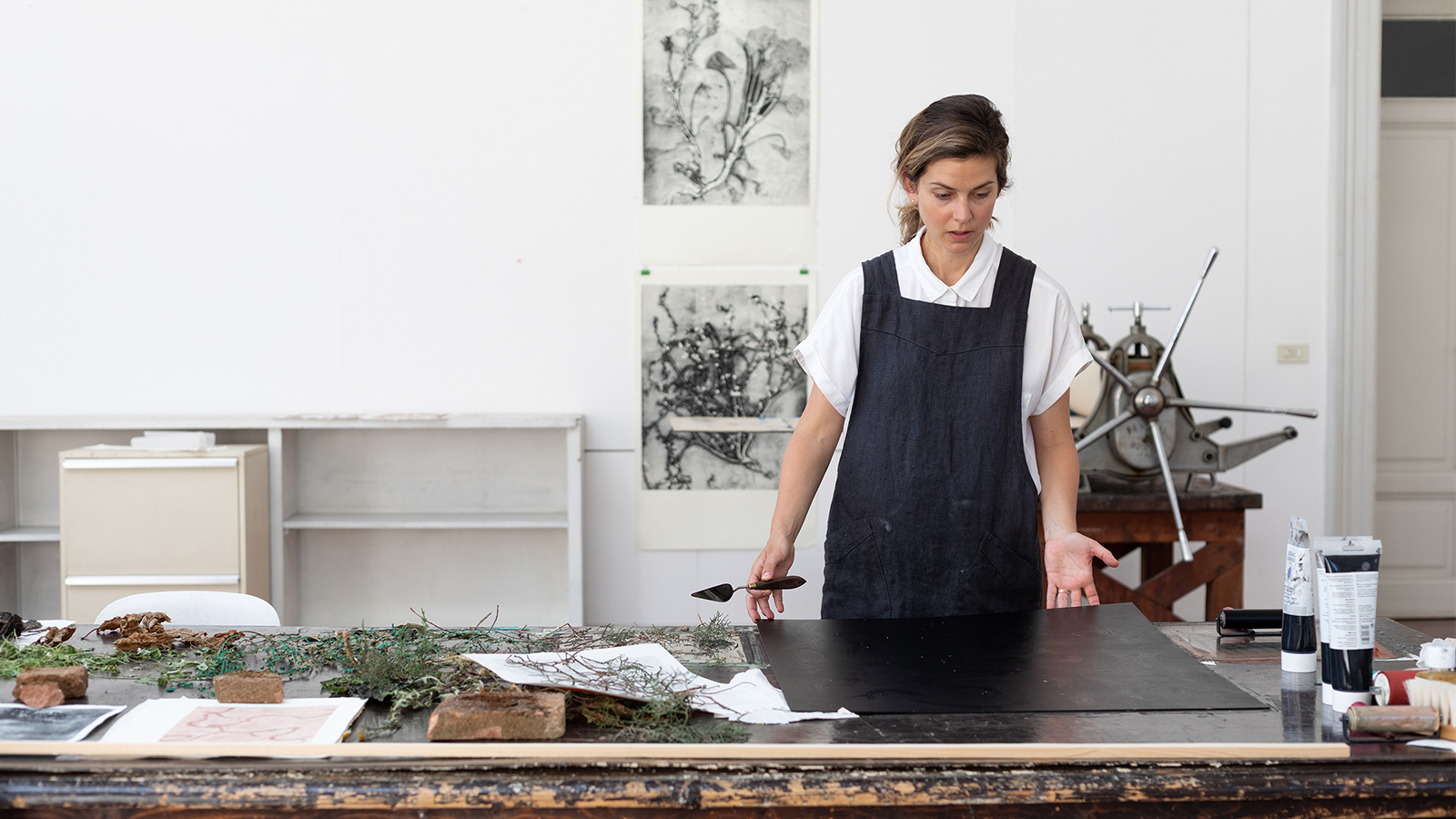
The application portal for the next Rome Prize competition will open in August 2024. The deadline for applying will be November 1, 2024, with an extended deadline of November 15 for an additional fee. Please read on for more information about the competition.
Overview
Before beginning your application, be sure to thoroughly read the application guidelines for your discipline (see below), including the printable PDF documents that outline the full application requirements for each discipline.
See the main Rome Prize page for more information about eligibility, deadlines and applications fees, and the interview and selection process. You may also read answers to frequently asked questions.
Arts
Architecture, Design, and Landscape Architecture
Included in design are: graphic, industrial, interior, exhibition, set and costume, and fashion design, urban design, city planning, engineering, and other design-related fields.
Included in landscape architecture are: environmental design and planning, landscape and ecological urbanism, landscape history, sustainability and ecological studies, and geography.
Full-term and half-term Rome Prize Fellowships are available in architecture and landscape architecture. Applicants in design only have the option of a half-term fellowship. All applicants must hold an accredited degree in the discipline and be practicing in the discipline. Applicants should submit materials that best display their qualifications and experience in their discipline. Jurors review a wide range of materials in this category and should be able to clearly understand not only the candidate’s background but the candidate’s philosophical approach to their work and the professional trajectory he or she is pursuing.
Historic Preservation and Conservation
Full-term and half-term Rome Prize Fellowships are available to professionals in historic preservation and conservation who are actively engaged in their fields.
These awards are intended for a broad range of individuals who work on the conservation and historic preservation of works of art, manuscripts, or cultural properties (including architecture, engineering, planning and design, urban design, or landscape architecture), and those who work in the area of cultural policy. Applicants are encouraged to submit materials that best express the quality of what they do and how they think.
Jurors review a wide range of materials in this category and should be able to clearly understand not only the candidate’s background but the candidate’s philosophical approach to their work, as well as the professional trajectory he or she is pursuing.
Literature
Included in literature are: fiction, literary nonfiction, and poetry.
Full-term and half-term Rome Prize Fellowships are available in literature. Applicants must demonstrate professional commitment and be currently engaged in work in the discipline.
Musical Composition
Applicants for full-term Rome Prize Fellowships in music composition must demonstrate professional commitment and be currently engaged in the discipline.
Visual Art
Included in visual arts are: painting, sculpture, drawing, photography, film and video, installation, new media, digital arts, and other visual arts–related fields.
Full-term and half-term Rome Prize Fellowships are available in visual arts. Applicants must demonstrate at least three years of professional commitment and currently be engaged in the discipline. Applicants working in art and technology are also encouraged to apply.
Do You Live in Chicago?
We encourage artists in the Chicago area to also apply for the Terra Foundation Affiliated Fellowship for Chicago-Based Visual Artists. This six-month fellowship provides room, board, a studio, a travel stipend of $2,000, and a stipend of $15,000. The Terra Foundation Affiliated Fellowship requires a separate no-fee application. Please click the link above for more information and to apply.
Humanities
The Academy accepts pre- and postdoctoral applications for the Rome Prize in the following categories.
Ancient Studies
Through the sixth century.
Medieval Studies
The sixth through fourteenth centuries.
Renaissance and Early Modern Studies
The fourteenth through eighteenth centuries.
Modern Italian Studies
The eighteenth century to the present.
The Academy invites proposals in archaeology, classics, history, the history of art and architecture, economic and political policy, literature, musicology, theory, and other relevant fields. Please note that these categories are not intended to be exclusive. Any approach or combination of approaches to these disciplines will be given consideration. We welcome interdisciplinary work on historic and contemporary issues across the humanities including one or more of the chronological periods listed above. Cross-cultural projects that share Rome and its influences are also welcome.
Tsao Family Rome Prize
We are pleased to offer the Tsao Family Rome Prize, to be awarded to a humanities scholar whose project explores the relationship between Chinese and Mediterranean philosophical traditions.
This full-term fellowship will introduce philosophy into the mix of artists and scholars in the AAR community and emphasize the importance of this discipline in establishing a moral framework that may provide ways of moving forward as individuals and as a culture.
Both predoctoral candidates and postdoctoral scholars are eligible for this fellowship, which supports research on the intersection of philosophy with Chinese and Western traditions and draws on Rome as a crossroads between East and West.
Predoctoral Fellowships
The Academy offers full-term predoctoral fellowships (of approximately ten months). Predoctoral fellowships are meant to provide scholars with the necessary time to research and complete their doctoral dissertations. Applicants for predoctoral fellowships must have fulfilled all predissertation requirements, and preferably completed a draft of the first chapter of their dissertation, by the application deadline.
Postdoctoral Fellowships
The Academy offers full-term (approximately ten months) and half-term (approximately five months) postdoctoral fellowships in the fields listed above. All applicants for postdoctoral fellowships must hold a PhD at the time of application.
Two types of postdoctoral fellowships are available:
- Academy Postdoctoral Fellowships: Applicants for these fellowships must be US citizens, are often scholars at an early stage in their academic careers, and may be assistant professors, associate professors, or independent scholars
- National Endowment for the Humanities (NEH) Postdoctoral Fellowships: applicants for these fellowships must be US citizens, or foreign nationals who have lived in the US for the three years immediately preceding the application deadline, and may hold any academic rank or be independent scholars